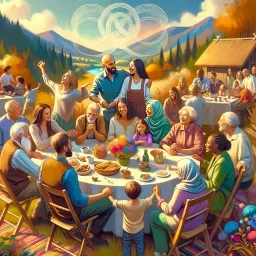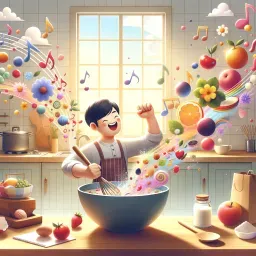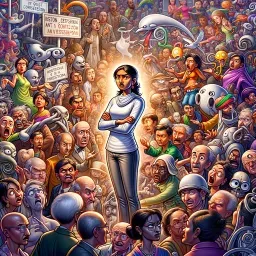”The past can hurt, but the way I see it,
you can either run from it or learn from it“

0
0
0
0
- Meaning
- The phrase underscores the duality present in human experiences—how past events can be sources of pain or valuable lessons. Philosophically, it invites reflection on the nature of suffering and growth, suggesting that while pain is inevitable, our response to it determines our journey towards wisdom and resilience. It resonates psychologically, as acknowledging past traumas is crucial for healing, while historically, it illustrates the human tendency to learn from experiences, which can lead to personal growth and transformation.
- Allegory
- In the allegorical image, the winding path symbolizes the journey of life, illustrating the concept of navigating through past experiences. The duality of the bright and shaded paths reflects the choices we face when confronted with our history—whether to embrace it or avoid it. The blooming flowers represent growth and the beauty that can emerge from confronting difficulties, reinforcing the phrase's message of learning from past pain. The overall warm colors and serene elements convey a sense of hope and wisdom, inviting viewers to reflect on their own life choices.
- Applicability
- In personal life, one can apply this phrase by choosing to reflect on past mistakes or events instead of repressing them. For instance, individuals can journal their experiences, discuss their feelings with others, or seek therapy to understand how past events shape their present behavior. This proactive approach allows for personal development and equips individuals with the resilience to face future challenges.
- Impact
- This phrase has transcended its origin in 'The Lion King' to become a motivational adage used in various contexts, inspiring discussions about personal growth, healing, and resilience. It has been quoted in many self-help books, educational settings, and speeches, illustrating its impact on cultural narratives around overcoming adversity.
- Historical Context
- The quote originates from the mid-1990s, coinciding with the release of 'The Lion King' in 1994. This period was significant for animated films, as they began addressing deeper themes and moral lessons appealing to both children and adults. The cultural backdrop of the film reflects a blend of African traditions and family dynamics, emphasizing growth and community.
- Criticisms
- While the phrase is largely celebrated for its positive message, some may criticize it for oversimplifying the process of healing. Critics argue that not everyone has the emotional or social resources to effectively learn from their pasts, and that some experiences can be too traumatic to tackle without professional guidance. A counter-argument is that the saying encourages a proactive stance towards healing, which can be empowering.
- Variations
- Variations of this phrase exist across many cultures, often emphasizing the importance of overcoming adversity. For instance, in some Eastern philosophies, there is an emphasis on accepting suffering as a path to enlightenment, highlighting different interpretations of learning from painful experiences.
-

Ohana means family.
-

Some people are worth melting for.
-

A spoonful of sugar helps the medicine go down.
-

Adventure is out there!
-

I’m a real boy!
-

I’m not a prize to be won!
-

Let it go.
-

Just keep swimming.
-

There’s no place like home.
-

You’ve got a friend in me.
-

I’m surrounded by idiots.
-

To infinity and beyond!
No Comments